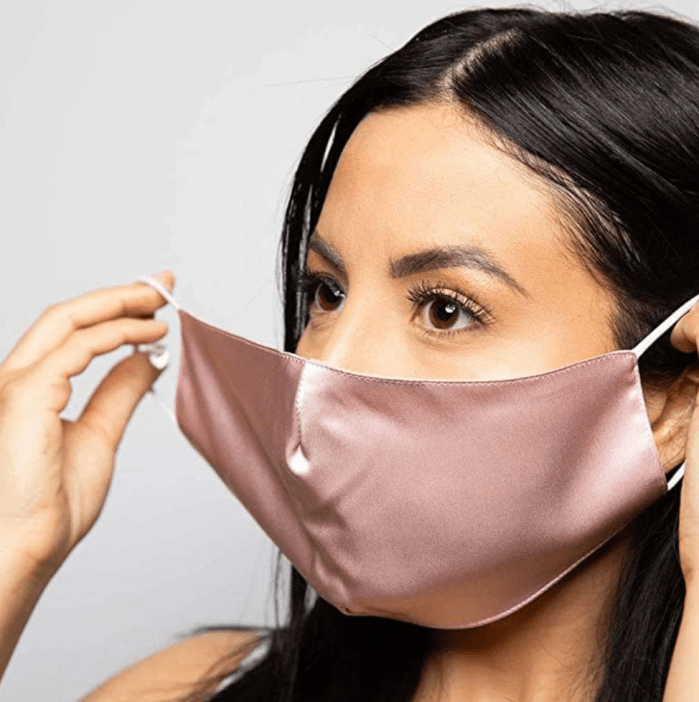Sensitive Skin and Suitable Face Mask Choices

Why is Sensitive Skin a Concern?
Sensitive skin is characterized by a heightened reaction to certain stimuli, such as environmental factors, skincare products, and even stress. This can cause redness, itching, dryness, and even breakouts. When it comes to face masks, the wrong formula can cause all of these symptoms to flare up, leaving the skin feeling irritated and uncomfortable.
Choosing the Right Face Mask for Sensitive Skin
When choosing a face mask for sensitive skin, there are a few key things to keep in mind:
- Look for masks that are labeled "gentle" or "soothing."
- Avoid masks with harsh ingredients like alcohol, fragrance, and sulfates.
- Choose masks with natural ingredients like aloe vera, chamomile, and oatmeal.
- Consider using a sheet mask instead of a clay or peel-off mask, which can be more irritating.
- Always patch test a mask before using it all over your face.
Top Face Mask Choices for Sensitive Skin
Here are some of the best face masks for those with sensitive skin:
1. Aloe Vera Gel Mask
Aloe vera is a natural anti-inflammatory that can help soothe irritated skin. Look for a mask that contains a high percentage of aloe vera gel, or even use pure aloe vera gel straight from the plant.

2. Chamomile Face Mask
Chamomile is another natural ingredient that is known for its soothing properties. Look for a mask that contains chamomile extract, or make your own by steeping chamomile tea and adding a little honey and yogurt.

3. Oatmeal Mask
Oatmeal is a gentle exfoliant that can help slough away dead skin cells without causing irritation. Look for a mask that contains colloidal oatmeal, or make your own by mixing ground oats with honey and water.

4. Cucumber Mask
Cucumber is a natural anti-inflammatory that can help reduce redness and swelling. Look for a mask that contains cucumber extract, or make your own by blending cucumber with yogurt and honey.

5. Sheet Mask
Sheet masks are a great option for those with sensitive skin because they are typically made with a soft, gentle material and are soaked in a nourishing serum. Look for sheet masks that are labeled "soothing" or "calming."

Pros and Cons of Using Face Masks for Sensitive Skin
Like any skincare product, face masks have their pros and cons when it comes to sensitive skin.
Pros:
- Can help soothe and calm irritated skin.
- Can provide a deep cleanse and exfoliation.
- Can help boost hydration and improve skin texture.
Cons:
- May cause irritation or inflammation if the wrong formula is used.
- May be too harsh for certain skin types.
- May not provide the same benefits as a professional treatment.
FAQs
Q: Can I use a face mask if I have sensitive skin?
A: Yes, but it's important to choose a mask that is gentle and soothing. Look for masks labeled "gentle" or "soothing," and avoid harsh ingredients like alcohol, fragrance, and sulfates.
Q: How often should I use a face mask?
A: It depends on your skin type and the type of mask you're using. Generally, once or twice a week is a good rule of thumb.
Q: Can I make my own face mask for sensitive skin?
A: Yes, there are many DIY face mask recipes that are gentle and nourishing for sensitive skin. Just be sure to patch test any new ingredients before applying them to your face.
Q: What should I do if my skin reacts to a face mask?
A: If your skin reacts to a face mask, immediately rinse it off with cool water and apply a soothing moisturizer. Avoid using any other skincare products until the reaction has subsided.
Conclusion
Choosing the right face mask for sensitive skin can be a challenge, but it's not impossible. By avoiding harsh ingredients and opting for gentle, soothing formulas, you can enjoy the benefits of a face mask without any irritation. Always patch test a new mask before using it all over your face, and don't be afraid to experiment with DIY recipes. With a little trial and error, you'll find the perfect face mask for your sensitive skin.
